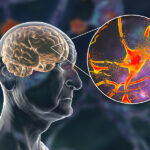By David Blyweiss, M.D., Advanced Natural Wellness
January 10, 2014
- An odd mix of peanut butter and famous people
- The (not so statistically significant) results are in…
- 4 proven ways to ward off dementia and Alzheimer’s
There have been some interesting “breakthroughs” in the diagnosis for Alzheimer’s and dementia lately. You might have heard of a few of them. They have been plastered all over the news and internet.
For example, researchers discovered people in the early stages of Alzheimer’s disease have a hard time smelling peanut butter when it’s held a short distance from their left nostril.
It worked so well that the study authors suggest this unique peanut butter test could be used by clinics that don’t have the personnel or equipment to perform more elaborate testing.
Another study found that people with a form of dementia called aphasia aren’t able to identify pictures of famous faces as easily as people without the condition. The conclusion drawn from the study is that this type of test could be used to help diagnose early dementia.
So… if you can’t smell peanut butter with your left nostril… and if you don’t recognize the faces of Winston Churchill or Mohammed Ali… are you doomed?
Of course not!
That’s why I dislike it so much when the media gets their hands on these sorts of studies.
Open your arteries, improve blood flow for a new health miracle...
Did you know your circulatory system has over 60,000 miles of arteries, veins and other blood vessels, if stretched end to end?
But as you age, your blood vessels undergo changes, which may cause them to stiffen, thicken and get clogged.
GOOD NEWS! Doctors have now identified a “Miracle Molecule” inside your arteries that helps OPEN your arteries and IMPROVE blood flow.
It’s what Dr. Valentin Fuster calls it, "One of the most important discoveries in the history of cardiovascular medicine."To you, that means...
- Healthy blood pressure
- Sharper mind and memory
- Skyrocketing energy and muscular strength
- Increased pleasure and passion in the bedroom
- Improved circulation to every cell and organ in your body
Go here to discover a new natural way to significantly boost the levels of this miracle molecule in YOUR body NOW!
The studies are blown out of proportion. And when someone decides to take the tests and fail them, they become overly concerned about their mental status.
Don’t believe me? Let me show you what happened when I tested one of these experiments out here at my office.
I would have loved to take the Famous Face Test myself to assess its validity. But I had already seen the study and knew which faces were involved.
So I asked five business associates take the test. (I didn’t happen to have any peanut butter at hand or I might have tried that one, too!) And while my little in-house study isn’t statistically significant, the results were pretty revealing.
Now these people aren’t slouches.
They’re analysts, researchers and business managers. So you would expect all of them to be able to put a name to at least 93% of the faces. (That’s the average score of the dementia-free people who were involved in the original study. The ones with early dementia averaged 46%.)
Guess what the results were?
Only one of these cracker-jack professionals had a score over 90% when it came to being able to name the faces. Another had a low score of 55%. The other three had scores between these two numbers.
This little test just confirmed my suspicions that Yes! If you have dementia, you probably won’t be able to name faces. But if you can’t put a name to a face, it certainly doesn’t mean you have dementia. And that’s an important distinction.
Are You Suffering From...
- Love handles and a pot belly
- Romance that isn't what it used to
- Forgetfulness and inattention
- Low (or no) strength and endurance
- A sex drive that's shifted into neutral...or worse
If so...you may have Mature Male Burnout. Click here to discover more about this unique condition and what you can do about it.
Here’s the thing. There currently isn’t any medical test that can actually detect Alzheimer’s disease while you are living. It requires an autopsy on the brain to determine the levels of Alzheimer’s-causing tau and amyloid plaque that have accumulated.
Scientists are experimenting with a novel test that measures the mitrochondrial DNA (mtDNA) in cerebrospinal fluid. (It turns out people with Alzheimer’s have a low mtDNA content in their fluid.) But some are questioning what good that will do since there is no cure for the disease.
Well, there may not be a medical cure. There isn’t even a drug for the disease. But there are several things you can do to reduce your risk… and even improve symptoms in the early stages of dementia and Alzheimer’s.
The most important one is to get plenty of exercise.
Yup. That’s right.
People who are more active and get plenty of exercise have less buildup of beta-amyloid plaque than those who are inactive. But that’s not all it does. It also helps generate brain derived neurotrophic factor (BDNF) which helps prevent brain shrinkage and even helps people who carry the gene variant (APOE-e4) that puts them at greater risk of Alzheimer’s.
It doesn’t matter what sort of activities you engage in. You can try brisk walking, aerobics, yoga, strength training, swimming or whatever else strikes your fancy. Just get your body moving!
There are also a few more things you can do too keep your brain in top-notch shape…
Stimulate your brain. Keep your brain active by engaging in crossword puzzles, brain games and other stimulating activities. People who do more reading, writing and game playing have less amyloid protein in the brain. Learning new things simply by reading or practicing meditation and even mindful breathing can protect the hippocampal area of the brain. This area is critical to memory…both short term and long term.
Supplement with N-acetyl cysteine (NAC) and alpha lipoic acid (ALA). These two glutathione precursors help reduce oxidative damage caused by excess amyloid beta and tau proteins. They also help move mercury and other metals out of the body that may be affecting your brainpower.
Cut down on sugar and carbohydrate intake. Older people who eat food high in carbohydrates have somewhere around four times the risk of experiencing a decline in mental abilities. And that danger increases if your diet is heavy in sugar. Sticking with a low-carb Mediterranean-style diet like the one I recommend, reduces those risks significantly. Functional medicine practitioners look upon Alzheimer’s disease as a Type III diabetes, so it’s important to keep your sugar intake as low as possible (especially limit high fructose corn syrup.)
It’s never too late to begin protecting your brain from dementia and Alzheimer’s disease. And you only have to do four things to keep it working at top-notch speed: Exercise, keep your mind active, boost your glutathione levels with NAC and ALA… and make sure you’re sticking with low carb foods.
P.S. I know that after reading this you are just chomping at the bit to see who is on the Famous Faces Test. So I’m attaching a copy of it below. Just remember not to take your results too seriously.

Want to find out how you did? Click here for your results.
Resources:
UF researchers find that ‘peanut butter’ test can help diagnose Alzheimer’s disease. News Release. University of Florida. Oct 2013.
Oprah’s and Einstein’s Faces Help Spot Dementia. Northwestern University. Aug 2013.
Head D, et al. Exercise Engagement as a Moderator of the Effects of APOE Genotype on Amyloid Deposition. Arch Neurol. 2012 Jan 9.
A. J. Gow, et al. Neuroprotective lifestyles and the aging brain: Activity, atrophy, and white matter integrity. Neurology, 2012; 79 (17)
Geda YE, et al. Physical exercise, aging, and mild cognitive impairment: a population-based study. Arch Neurol. 2010 Jan;67(1):80-6.
Landau SM, et al. Association of Lifetime Cognitive Engagement and Low β-Amyloid Deposition. Arch Neurol. 2012 Jan 23.
D. Allan Butterfield, et al. Elevated glutathione as a therapeutic strategy in Alzheimer’s disease. Drug Development Research 56:428–437 (2002)
Eating lots of carbs, sugar may raise risk of cognitive impairment. Mayo Clinic (2012, October 16).






